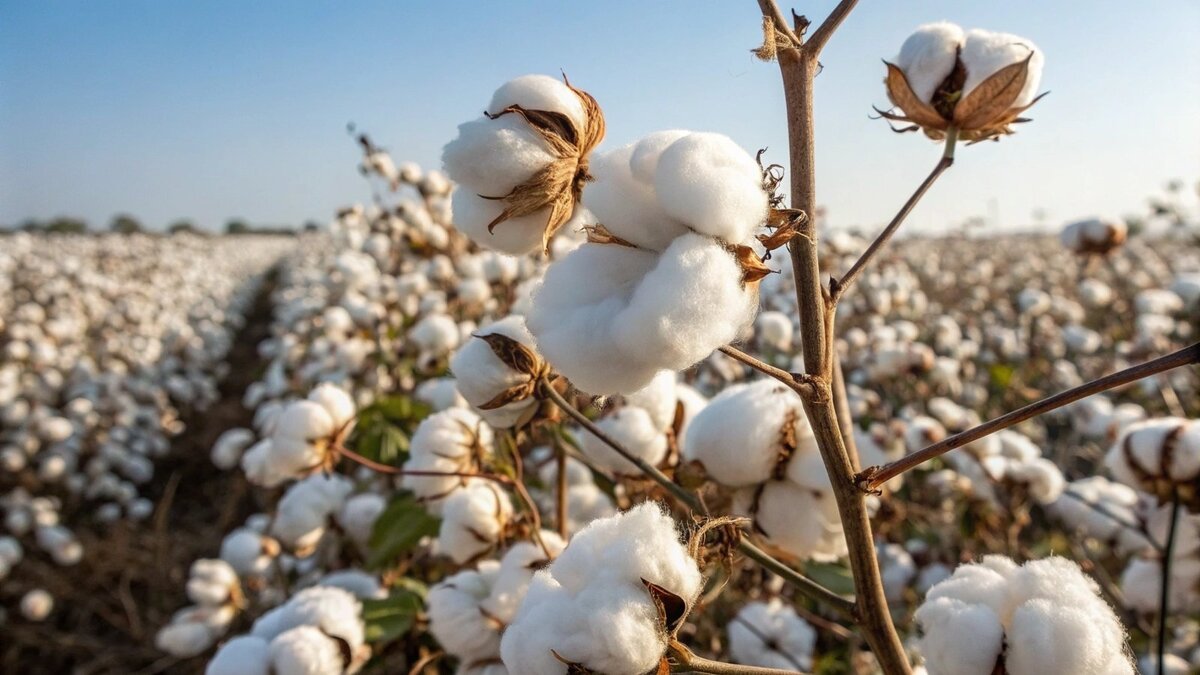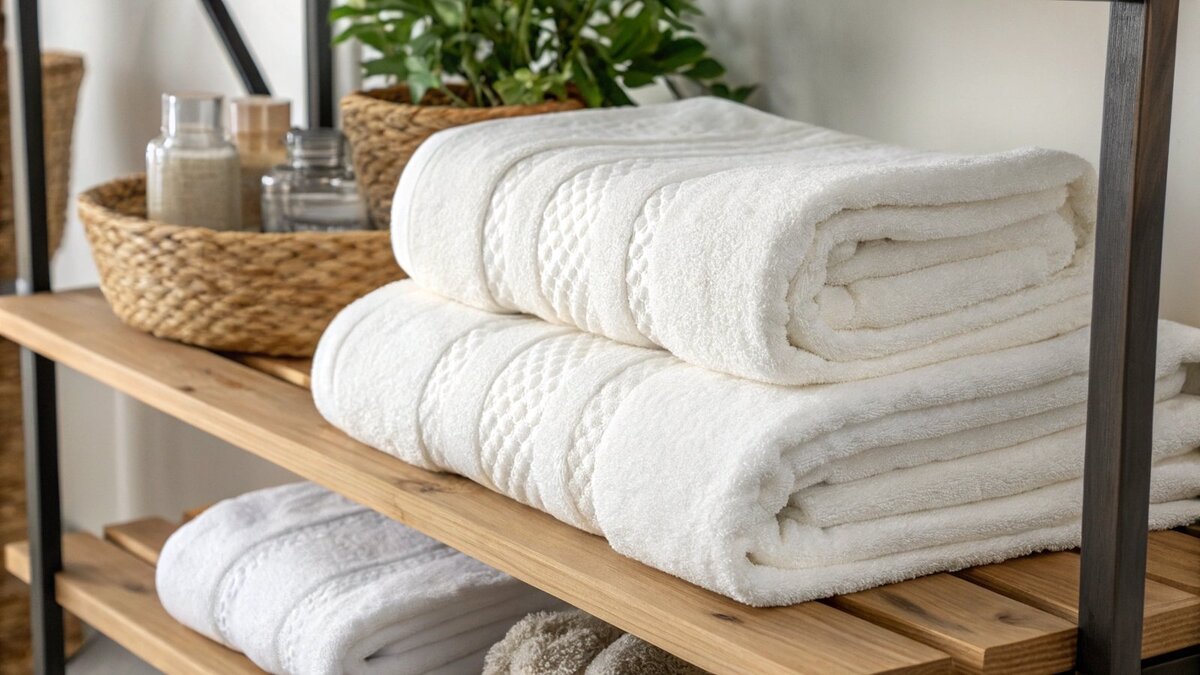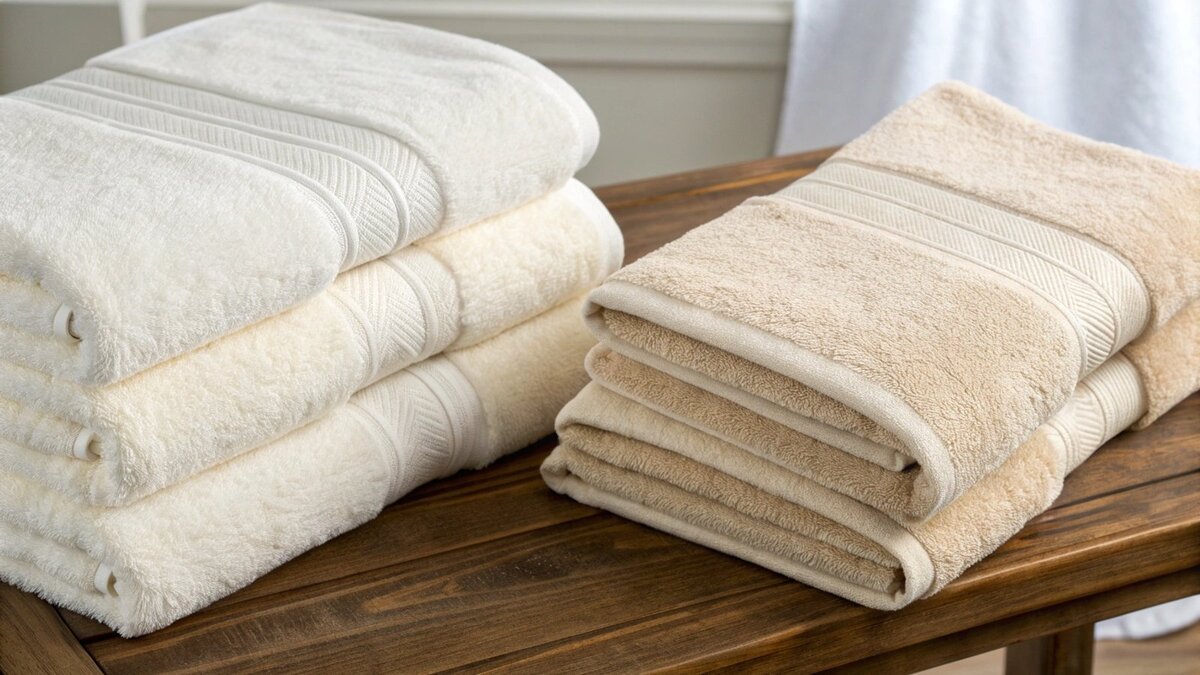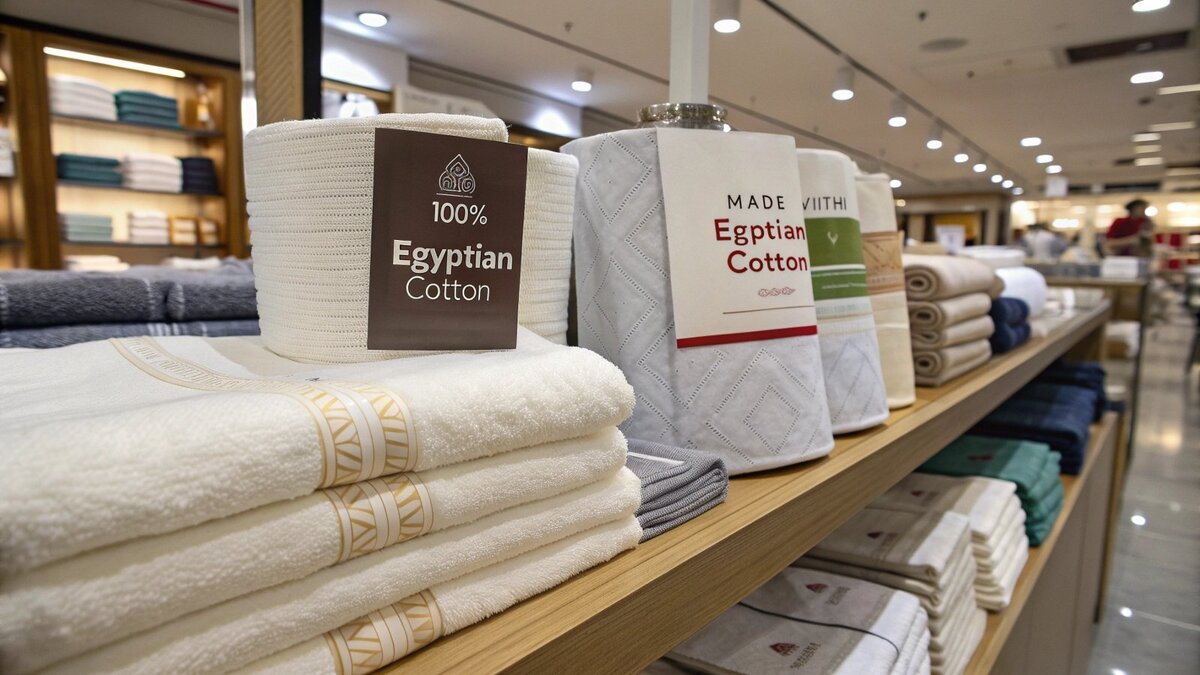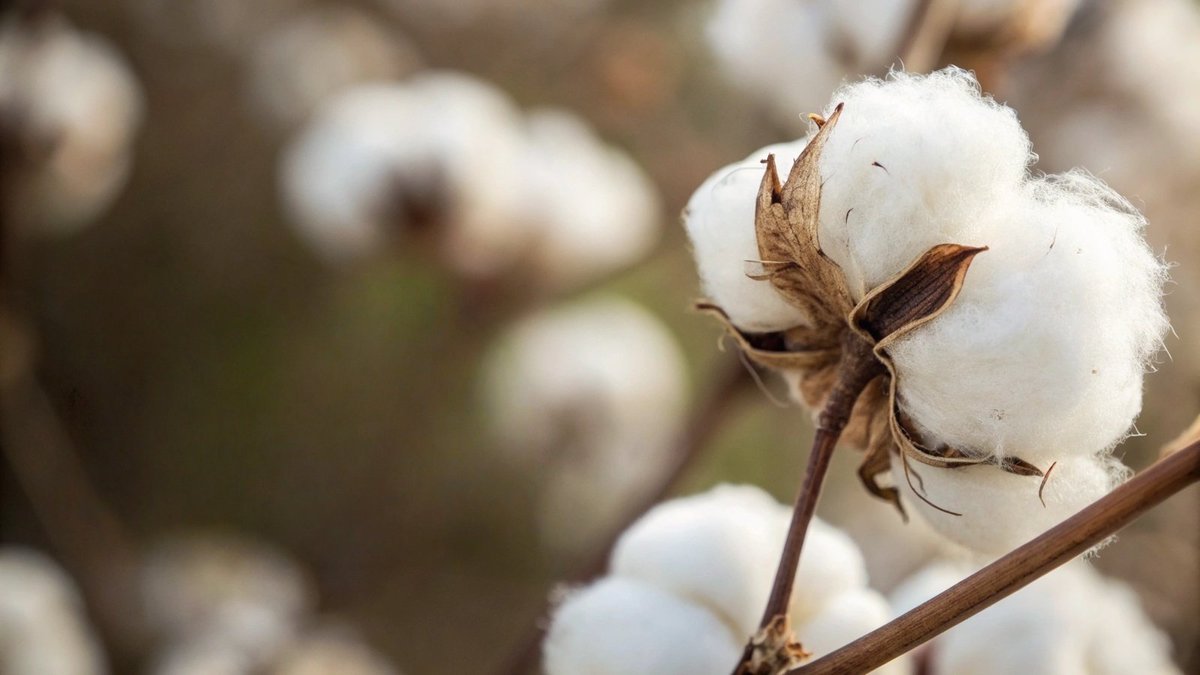Feeling lost in the world of premium cotton? Choosing the wrong material can hurt your brand and lead to unsatisfied customers. Let me break down what Egyptian cotton truly means.
Egyptian cotton is a specific type of cotton, Gossypium barbadense, grown only in Egypt’s Nile River Valley. Its extra-long staple (ELS) fibers create yarns that are exceptionally strong, smooth, and soft, making it one of the most luxurious and durable cottons in the world.
Now that you understand the basics, you’re probably wondering about the specifics. How does it actually feel? How does it stack up against other premium kinds of cotton like Pima? I’ve spent years guiding brands through these exact questions. Let’s dive deeper into what this material means for your brand and your customers, so you can make a choice that drives sales and earns loyalty.
What Does 100% Egyptian Cotton Actually Feel Like?
Worried your towels won’t feel as luxurious as promised? Descriptions can be misleading. Here’s how to identify that premium touch your customers expect and are willing to pay for.
100% Egyptian cotton feels incredibly soft, smooth, and almost silky against the skin. It’s also noticeably breathable and lightweight, yet has a substantial, durable feel. With each wash, it only gets softer, unlike lesser cottons that can become stiff or pill.
When my clients ask me to describe the feel of true Egyptian cotton, I break it down into a few key sensations that set it apart. It’s not just about a single feature; it’s about how several properties work together.
The Science of Softness
The secret is in the fiber length. Algodão egípcio fibers are extra-long. This means when we spin them into yarn, we need fewer connection points. Fewer connections create a smoother, more uniform thread. Think of it like using one long piece of string instead of tying many short ones together. That unbroken surface is what you feel as silkiness. Short-staple cottons have thousands of tiny fiber ends poking out, which feel rougher and are prone to pilling over time. With Egyptian cotton, you get a clean, smooth surface that delivers superior comfort.
Strength You Can Feel
That same long fiber that creates softness also creates incredible strength. Because the threads are made of long, unbroken fibers, they are far more resilient to pulling and friction. This translates to a towel or sheet that not only feels substantial and high-quality in your hand but also lasts for years. This durability is a major selling point I emphasize with brands; it builds customer trust and justifies a premium price.
Which is Better, Pima or Egyptian Cotton?
Deciding between Pima and Egyptian cotton can be confusing for brand owners. Making the wrong choice can affect your product’s market position and story. I’ll give you a clear comparison.
Both Pima and Egyptian cotton are premium extra-long staple (ELS) cottons from the same plant species. Egyptian cotton is often considered superior due to its ideal growing climate, which can produce even longer, finer fibers. However, authentic Pima is an excellent, top-tier alternative.
I’ve sourced both materials for countless projects, and the truth is, the "better" option often depends on your brand’s specific needs. They are both from the Gossypium barbadense plant, so they’re more like cousins than distant relatives. The real difference comes from the terroir—the environment where the plant is grown. The unique humidity and nutrient-rich soil of the Nile River Valley help Egyptian cotton grow fibers that can be longer and finer than almost any other cotton. This gives it a slight edge in softness and luster.
Uma comparação direta
To make it simple for purchasing managers, I often use a table to lay out the differences. This helps clarify where each material shines.
| Recurso | Algodão egípcio | Algodão Pima |
|---|---|---|
| Origem | Nile River Valley, Egypt | USA, Australia, Peru |
| Comprimento da fibra | Extra-Long (Can exceed 1.5 inches) | Extra-Long (Typically around 1.4 inches) |
| Sentir | Exceptionally soft, silky, and lustrous | Very soft, smooth, and durable |
| Reputation | The global "gold standard" for luxury cotton | Excellent, highly-regarded premium option |
| Verificação | Relies on supplier trust & certification | Strong verification (e.g., Supima® brand) |
My Advice for Buyers
"Egyptian Cotton" as a name carries immense marketing power. It’s universally recognized as the best. However, authenticity can be an issue. On the other hand, Pima cotton grown in the U.S. can be certified as Supima®, which guarantees 100% authenticity. I advise clients to consider their brand story. Are you selling the ultimate, aspirational luxury? Egyptian might be your answer. Are you focused on guaranteed American quality and transparency? Supima® is a powerful choice.
Are Products Labeled ‘Egyptian Cotton’ Always 100% Cotton?
You see "Egyptian Cotton" on a label and assume it’s pure. But misleading blends are common in the industry. I’ll help you spot the difference to avoid costly sourcing mistakes.
Ideally, yes. Products labeled "100% Egyptian Cotton" should be just that. However, some products use blends, labeling them just "made with Egyptian cotton," which can be misleading. Always check for the "100%" claim and work with trusted suppliers to get pure product.
This is one of the biggest pitfalls I help my clients avoid. The term "Egyptian cotton" is so powerful that some manufacturers try to take shortcuts. They will blend a small amount of genuine Egyptian cotton with cheaper, short-staple cottons or even synthetic fibers like polyester. This allows them to use the name but at a much lower cost. The problem is, the final product loses all the qualities that make Egyptian cotton special—the softness, the strength, and the absorbency are all compromised. It creates a poor customer experience and can damage a brand’s reputation.
How to Verify What You’re Buying
Here are the practical steps I walk my clients through to ensure they are getting the real deal:
- Read the Full Label: Don’t just stop at "Egyptian Cotton." Look for the phrase "100% Egyptian Cotton" or "100% Long-Staple Egyptian Cotton." Be wary of vague terms like "Egyptian cotton blend," "Egyptian cotton touch," or "made with Egyptian cotton."
- Trust Your Supplier: This is the most crucial step. A reputable manufacturer like TowelTrend will provide full transparency and documentation for our materials. We stand by our sourcing because our reputation depends on it. A trustworthy partner removes the guesswork.
- Consider the Price: Pure Egyptian cotton is a premium raw material, and its price reflects that. If you find a supplier offering "Egyptian cotton" towels for a price that seems too good to be true, it almost certainly is. They are likely cutting corners with a blend.
Is Egyptian Cotton a Natural or Synthetic Fiber?
Customers are demanding natural, sustainable products more than ever. Are you sure your premium cotton fits the bill? Don’t get caught out by misinformation on fiber types.
Egyptian cotton is 100% natural. It is a plant-based fiber harvested from the cotton plant (Gossypium barbadense). It is completely biodegradable and contains no synthetic components, making it an eco-friendly choice for textiles like towels and bedding.
It’s easy to get confused with all the different textile terms out there, but this one is very straightforward. Egyptian cotton is a gift from nature. The entire process, from start to finish, is rooted in agriculture. The plant grows in the ground, the cotton bolls are harvested by hand, and the fibers are then separated and spun into yarn. There are no plastics, chemicals, or petroleum involved in creating the fiber itself. This is a huge selling point in today’s market.
Natural vs. Synthetic: The Key Differences
I often create a simple chart for clients to visually show the difference between a natural fiber like cotton and a synthetic one like polyester. This helps their marketing teams communicate the benefits clearly.
| Property | Egyptian Cotton (Natural) | Polyester (Synthetic) |
|---|---|---|
| Source | Cotton Plant | Petroleum (Crude Oil) |
| Sentir | Soft, breathable, absorbent | Can feel slick, less breathable |
| Moisture | Absorbs moisture (hydrophilic) | Pushes moisture away (hydrophobic) |
| Sustentabilidade | Biodegradable, a renewable resource | Not biodegradable, resource-intensive |
Why This Matters for Your Brand
Emphasizing the "100% natural" aspect of Egyptian cotton is a powerful marketing tool. It appeals directly to the growing segment of eco-conscious consumers. When you can tell your customers that your towels are not only luxurious but also plant-based and biodegradable, you build a stronger brand story. This is also where certifications become vital. At TowelTrend, we provide options like the OEKO-TEX® certification, which guarantees the final product is free from harmful substances, adding another layer of trust and value for your customers.
Conclusão
In short, genuine Egyptian cotton offers unmatched softness and durability due to its long fibers. To ensure you get the real deal, always verify the source and look for that "100%" label.

